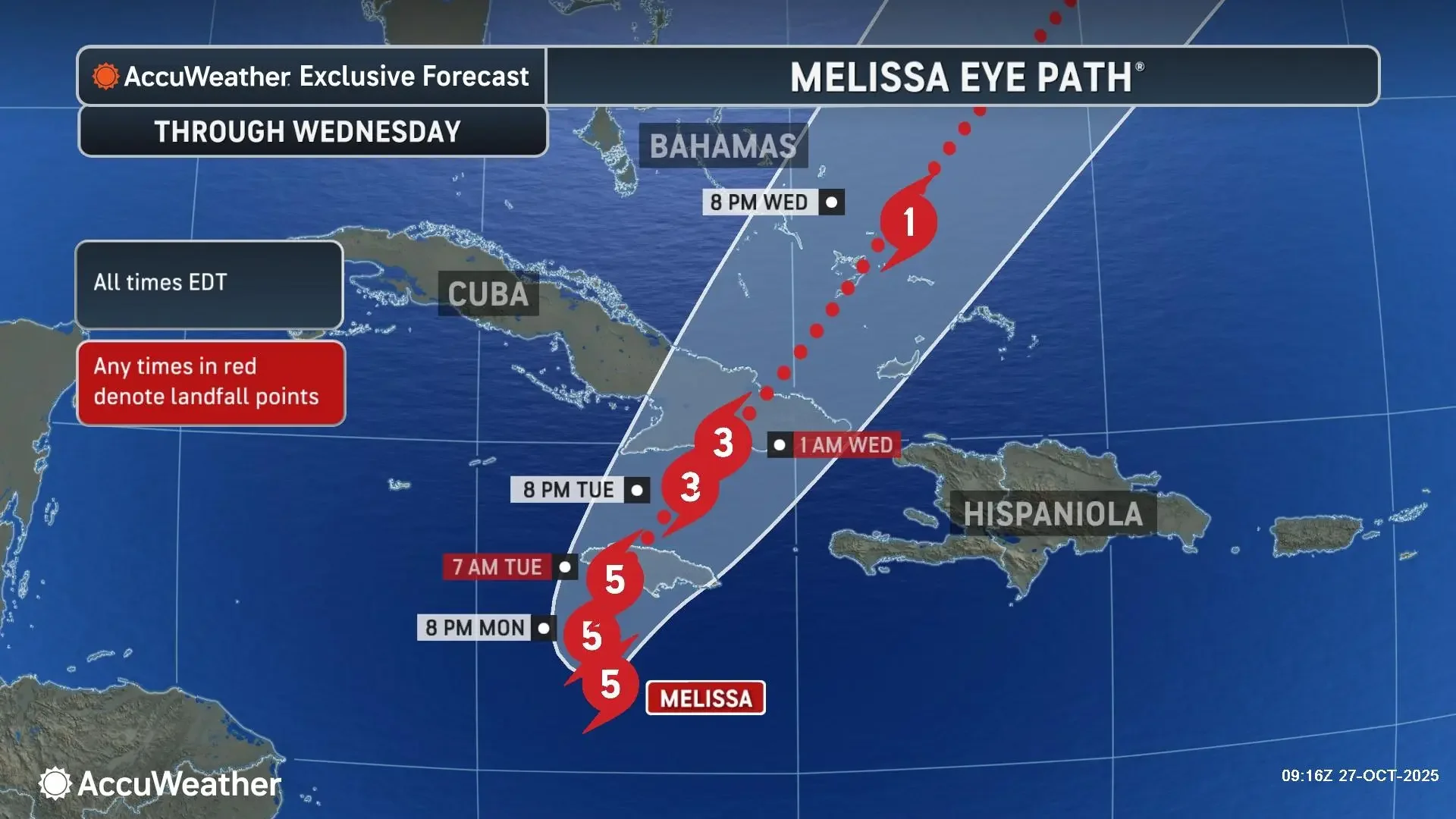What Travelers Should Know About Hurricane Melissa
As Hurricane Melissa barrels toward Jamaica, forecasts from the National Hurricane Center describe a catastrophic system — a Category 5 hurricane with sustained winds over 160 mph, relentless rain, and widespread flooding potential. Government officials have declared states of emergency across much of the island, and airports including Norman Manley International (KIN) and Sangster International (MBJ) have suspended all commercial operations until conditions allow for reopening.
At this stage, evacuation is no longer possible for many residents — Jamaica’s focus is firmly on protecting lives and essential infrastructure. The storm’s slow movement means the island will endure hours (possibly days) of dangerous conditions.
While the human impact is the most urgent concern, many travelers are understandably anxious about their scheduled trips to Jamaica and other areas in Melissa’s path.
If You Have Upcoming Travel to Jamaica or the Caribbean
Right now, flights to and from Jamaica are grounded. Airlines have issued flexible change policies, allowing travelers to rebook, delay, or cancel upcoming itineraries. Cruise lines have adjusted routes, and many resorts have temporarily closed for safety.
Even after the storm passes, it will take time for power, communication, and airport operations to be restored. Infrastructure damage and flooding may impact road access and resort reopenings.
If you have an upcoming trip to Jamaica, do not attempt to travel until authorities confirm it’s safe — and your travel provider explicitly clears you to do so.
Travel Insurance FAQs: What to Know If Your Trip Is Impacted by Hurricane Melissa
Q: My flight to Jamaica was canceled because of the hurricane. Am I covered?
A: If your flight is canceled due to Hurricane Melissa, coverage depends on when you bought your policy.
If you purchased your plan before the storm was named, most travel insurance policies will cover trip cancellation or trip interruption caused by natural disasters.
If you purchased it after Melissa became a named storm, the hurricane is considered a foreseeable event — meaning new coverage for it likely won’t apply.
You can usually file a claim for non-refundable trip costs (hotel, tours, flights) that aren’t refunded by your airline or travel provider.
Q: The airline canceled my flight and offered a credit. Should I still file a claim?
A: You should start with the airline or tour operator. Most insurers require that you seek refunds or credits first. If you receive only a partial refund or incur additional costs (like rebooking fees or extra nights elsewhere), your insurance may reimburse the difference — but only for covered expenses that remain non-refundable.
Q: My resort is closed due to storm damage, but my flight hasn’t been officially canceled yet. Can I cancel and claim a refund?
A: Yes, if your resort or destination is uninhabitable or unusable due to hurricane damage, that’s typically a covered reason for trip cancellation. You’ll need documentation (e.g., official closure notice, photos, or local news verification).
If the resort closure happens after your scheduled travel date, you may qualify under trip interruption instead, for unused portions or early returns.
Q: My trip isn’t for another week — should I cancel now or wait?
A: It’s best to wait for official airline or resort updates before canceling on your own. Voluntary cancellations (“fear of travel”) aren’t usually covered unless your plan includes Cancel For Any Reason (CFAR) coverage.
If you’re within your cancellation window and can change dates without penalty, rescheduling may be your best move.
Q: What if my connecting flight or alternate airport is affected, not my main destination?
A: Many plans extend coverage if your connecting city or transportation hub is directly affected by the storm. Check whether your policy includes common carrier delay or weather delay protection — this can help cover hotel stays, meals, or alternate routing if you’re stranded mid-journey.
Guidance for Travelers
Monitor official updates from your airline, resort, and local authorities.
Do not travel to affected areas until safety is confirmed.
Save all documentation — cancellation notices, receipts, and airline communications are required for claims.
Check your policy date. Coverage depends on whether the storm was named before or after purchase.
Reach out to your insurer or travel agent before making changes to understand your options. Please use our Chat
feature in the bottom right corner on our site.
A Message of Compassion and Caution
The situation in Jamaica is dire, and our hearts are with those facing the full force of this storm. For travelers, patience and empathy are key — the country will need time to recover, and tourism must take a back seat until it’s safe and responsible to return.
In the meantime, stay in close touch with your airline, resort, and travel insurance provider. Keep records of cancellations, receipts, and any communications — these are essential for claims later.
And above all, remember: no vacation is worth risking your safety or straining already burdened local resources. Jamaica will need visitors again soon — but first, it will need time to heal.

